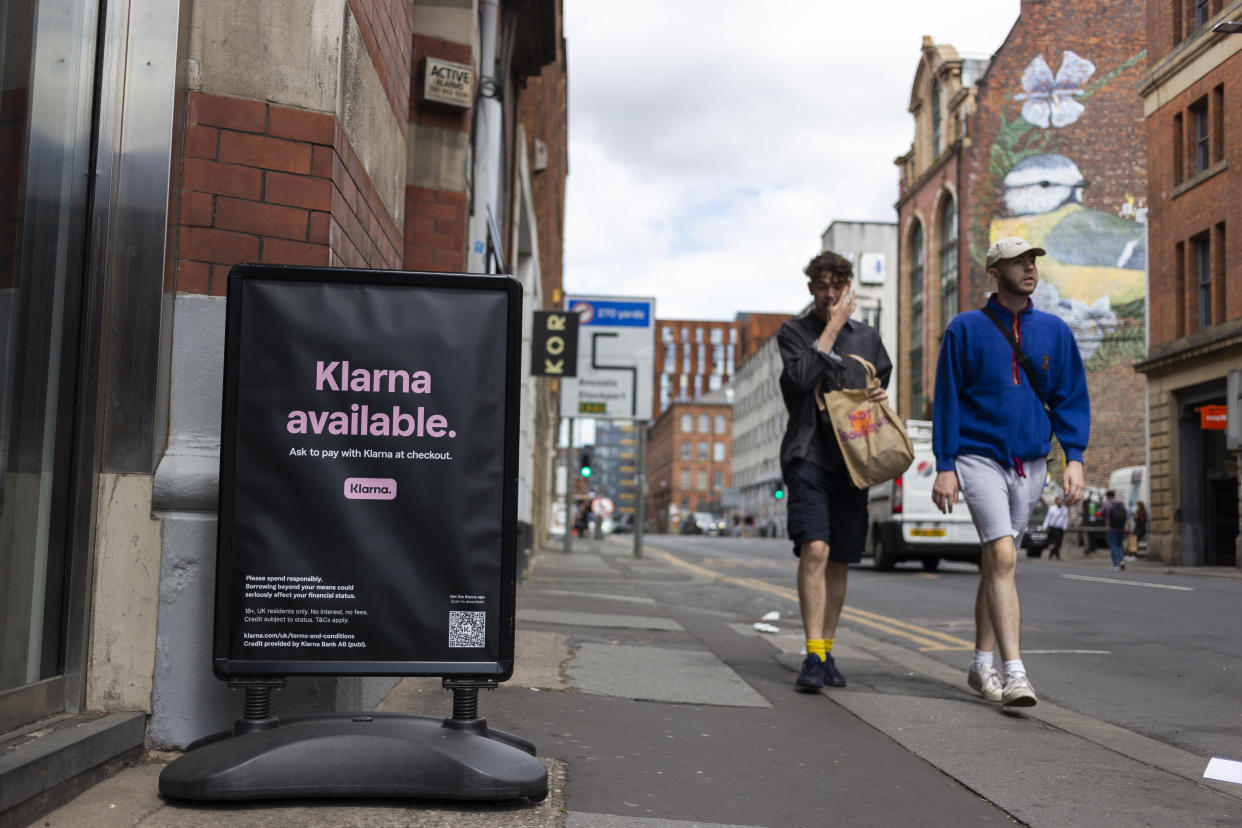Buy now, pay later: How new regulation will protect consumers

The UK’s financial watchdog is set to receive more power to clamp down on buy now, pay later (BNPL) under draft government proposals aimed at giving consumers greater protection.
The Treasury said the new rules would protect up to 10 million people from being "exposed to financial harm".
BNPL products allow consumers to pay for goods in instalments, typically interest free.
Under the draft proposals, BNPL products would be regulated by the Financial Conduct Authority (FCA), which would have the power to ban BNPL companies from further lending if it found them in breach of its rules.
Lenders will have to do better affordability checks on borrowers and offer clearer information on loans.
Customers will also be able to take complaints about companies to the Financial Ombudsman.
Read more: UK watchdog warns over buy now, pay later amid cost of living crunch
The purchase schemes are popular, with Adobe Analytics finding that 12% of online purchases made in the UK in January were made with BNPL, and debt service charity StepChange saying that 27% of Britons had planned to pay use such a scheme to pay for Christmas last year.
While shoppers are not usually charged interest on their purchases, campaigners have warned that borrowers are still at risk of overextending themselves with debt, and are not entitled to compensation if things go wrong as such firms are not yet regulated in the UK.
The UK’s BNPL sector nearly quadrupled in size during the COVID pandemic in 2020 to £2.7bn.
Economic secretary to the Treasury Andrew Griffith said: “People should be able to access affordable credit, but with clear protections in place. That is why these proposed regulations are so important.
“Today’s summit will also help regulators and banks better understand the best ways to support people who feel boxed in by debt and open up the financial system to people who find it more difficult to access.”
An eight-week consultation is being launched this Tuesday, looking at how firms would need to comply with FCA rules, including how they would need to spell out the key information about loans to customers.
The next stage after the new consultation will be legislation.
Read more: Klarna and your credit report: how buy now pay later will impact your rating
Rocio Concha, Which? director of policy and advocacy said: “BNPL options appear at many online checkouts, but our research shows that many users do not realise they are taking on debt or consider the prospect of missing payments, so the government's proposed new rules and legislation are an important step.
"The government must ensure there are no delays to introducing these changes and that consumers are given stronger safeguards to protect them and warn about the risks of using BNPL schemes. This needs to include greater marketing transparency and information about the risks of missed payments and credit checks before consumers are cleared to use BNPL providers.”
The Treasury said it will also work with the financial services sector to ensure credit is available to people who struggle to access it.
Liz Edwards, editor in chief of personal finance comparison site finder.com, said: "Buy now, pay later (BNPL) services have been booming over the last few years, particularly with the cost of living crisis putting increasing pressure on consumer finances. These services have remained relatively unregulated in the UK, with a lack of proper affordability checks and no access to the Financial Ombudsman, despite the potential harm that this form of borrowing can cause if the consumer can’t afford the repayments.
"A study conducted by Finder at the end of 2022 uncovered a BNPL patchwork of different approaches to affordability checks. We found that 3 out of 9 of the leading BNPL services in the UK did not perform credit or affordability checks upfront before lending customers money. Many consumers are unaware they’re borrowing money and, in some cases, that they’ll be charged a late payment fee if they don’t repay on time."
Watch: The risks of buying now and paying later
Download the Yahoo Finance app, available for Apple and Android.

